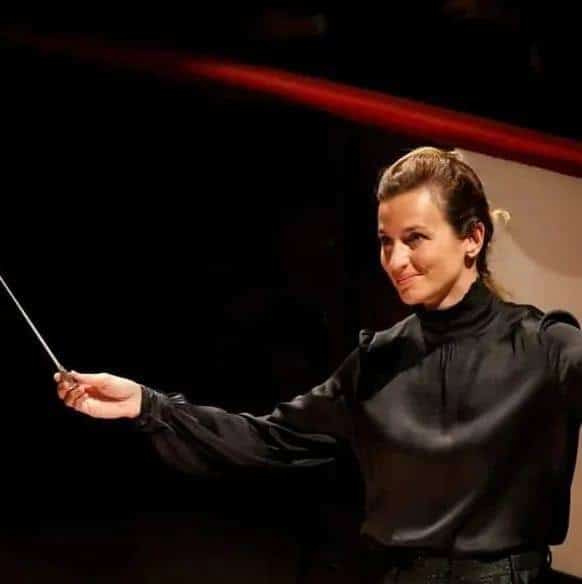Muti is now the world’s top-paid conductor
mainThe annual instalment of Drew McManus’s survey of US orchestral wages puts Riccardo Muti on top of the baton pile with a salary of almost $3.5 million from the Chicago Symphony in the fiscal year ending July 2019.
Below him, Dudamel, Nelsons and Yannick are raking it in fast. Yannick with his parallel salary from the Met, must be almost matching Muti, while Jaap Van Zweden, who switched midyear from Dallas to New York, still topped $1.7 million and drew another salary from the Hong Kong Philharmonic besides. Jaap still holds the all-time record for raking in $5.1 million from Dallas in fiscal 2013-14.
Put another way: Muti earned seven times as much as the Chicago Symphony president.
Here are the maestro millionaires (and one woman, almost):
1 Chicago Symphony: $3,420,804 – Muti
2 Los Angeles Philharmonic: $2,857,103 – Dude
3 San Francisco Symphony: $2,139,720 – MTT
4 Boston Symphony: $1,787,000 – Nelsons
5 Philadelphia Orchestra: $1,672,167 – Yannick
6 Cleveland Orchestra: $1,485,371 – FW-M
7 Minnesota Orchestra: $1,036,622 – Osmo
8 Dallas Symphony: $911,024 – Jaap
9 New York Philharmonic: $816,375 – Jaap
10 Baltimore Symphony: $756,911 – Marin Alsop
All maestro earnings across the board here.
Chief exec earnings here.






I’d like to see more serious analysis. We are shown lot of long-established conductors with tenure at the top of the list.
More interesting to me would be the earnings of younger conductors, as an indication of who seems to be heading for greatness. However, since they are generally freelancing across a range of orchestras, this data may not be in the public domain.
Terrific picture!
Pizza diavolo
Pizza Chailly.
Pizza horribilis
As a consumer, I can think that some of them are overpaid, that some others have a fair income and, honestly, my favourite living conductors are not in the list.
By the way, can anybody speculate who is world’s happiest conductor?
John Williams
Gustavo is so AWESOME❣️
Blomstedt
Thielemann
Hahahahaha
The Musical Research Lab of the Texas Institute of Technology has investigated this matter and they could not come up with one single ‘happy conductor’. But they found-out that the most UNhappy living conductor was [redacted]. Dr Hofstadter, the leader of the research team, called him up to ask why that was, but [redacted] explained he cultivated his morose condition to be able to achieve transcendend quality in his interpretations. (Source: TIT Journal of Musical Analysis.)
If $$$s = happiness then, um, Muti ?
John Adams, conducts when he feels like it and the music he wants to perform.
Some of the Big Ten Conductors have a last name, some have a first name, some have a nickname, some have initials, one has a full name. Five variations for ten names. Is there any logic behind this? I find it a bit annoying…
I once saw Anner Bylsma show a young cellist how to vary the phrasing in the prelude of Bach’s first cello suite.
first name – my friend of secondary importance
second name – the inaccessible male diva from another world
nickname – lack of respect towards youngster from another planet
initials – indifferent attitude
full name – awareness or fear of gender issue
Muti’s salary is entirely funded by the largesse of starry-eyed Zell family.
Muti is officially the Zell Music Director, although he eschews the title by pure disdain of the Zells, who are, in Muti’s book, decidedly not the Medicis, so hardly worthy of attaching their name to his (or rather, HIS name to THEIRS).
If Bill Gates decided to give $3 million to the music director of the Seattle Symphony instead of to HIV research in Africa, then Thomas Dausgaard would be the highest paid conductor in the world.
Ask not why billionaires do what they do, they just do.
Rather than trash the Zell family we should be praising them for giving generously to music and the arts.
I agree. Your advice should be followed first and foremost by Muti who is trashing the Zells as a matter of habit, but pockets their money.
Spot on. According to Muti, the Zells represent the essence of arrogant and vulgar rich Americans. How ironic. And how ungrateful, one could add.
This is a laudable analysis and it is focused on cash earnings. It does not include the very special packaged perks that Muti gets on the job with the compliments of Alexander.
Who is calling the Zells vulgar? The same person who labels a certain category of people “finocchi”?
The real question is: which of these conductors has been present with their orchestras during the pandemic? Even if they couldn’t travel, did they take part in remotely-recorded videos, make fundraising calls to donors, cheerlead from afar? Some orchestras have certainly gotten their money’s worth more than others.
More $s than sense.
Congratulations!
Well deserved.
not really, in proportion to other musicians, particularly freelancers.
Now when we look at the guys with multiple orchestras in the list, YN and AN for instance, then we can conjure that they make more than 10.000 every day of the year, dividing the yearly gross income through 365 days. After the agents got their (fair?) share.
That’s insane, in a world where the solo oboe playing with them might make 200-300 a day.
It clearly shows, that renumeration is correlated to (market) power, not to importance.
IMO a conductor should never make more than 10 times, maybe in exceptional cases 20 times, of what the lowest paid member of the orchestra makes.
My estimate is, knowing the biz a bit from the inside, that young conductors can make between 70-150k€ a year, the higher end would require at least some kind of a regular position. 15-20 concerts a year at avg 4000-7000€ / concert depending where would be quite close to the reality.
Deducting commissions for agencies at 15-20% and taxes, it’s still a reasonable living.
Then there are some few ones who operate at 200k€-400k€ per year, but they have already positions in bigger orchestras.
I think the more interesting story is how many of these orchestras with sub-$10 million budgets are paying their music directors $200k+. I mean, these orchestras tend to only do a concert or two a month — their season is well under 20 weeks.
Vanska in particular seems to be outperforming his peers. There are a bunch of orchestras with budgets in the low to mid $30 millions where the music directors are getting about $500k, sometimes a bit more. At $1+ million, Vanska is far and away the best paid at this tier of orchestras.
I always love those pictures of Muti burning contemporary scores.
Yours at the top of his pile!! 🙂
That’s how I know. I’m fine with that since he cannot read them.
As I set the record straight in my posted comment on the brilliant Jeff Alexander yesterday attached to the “What Top Orchestral Execs Are Earning” article, I comment today on Helen Zell. Every orchestra in the country would be extremely well served if it could identify someone with her passion for music and unrelenting generosity. As I understand it, Helen and her husband have cumulatively donated more to the Chicago Symphony Orchestra Association than anyone else in its 130-year history. The simplest research informs us their generous gift to the endowment fund about seven years ago will fund, in part, in perpetuity, the position of Music Director, no matter who is serving in it. Subsequently, I understand they have made an even larger gift to assist with paying down long-term debt. They are dedicated to the success of the orchestra and organization and the millions of lives touched every year by the concerts and educational programs delivered in Chicago and the world over. I have heard Helen’s term as Board Chair is coming to a close soon. How fortunate the CSOA has been to have had her in this leadership role and, I imagine, will be with her and her husband’s continued generosity for years to come.
All praise to the Zells and their support of the Chicago Symphony Orchestra. But Muti has to go. He is the biggest hypocrite in the world. He is the kind of man who gives conductors a bad name. All of his constant posing as The Great Humanitarian, comparing himself to Toscanini in 1946 etc…..and to think of all the people who were let go from the CSO since COVID hit; and before that, how he ran Gerard McBurney out of the organization which was artistically stupid and utterly despicable. The “Beyond the Score” series was one of the most beautiful things in the business.
if i had his wealth i would not want to
work in Chicago. crime/bad weather.
well, he makes his wealth in Chicago, so your point is moot.
If he could make that kind of money in Ravenna, I’m sure he would prefer that. But that seems a bit unlikely.
Some people say money is not the only thing that keeps bringing the Maestro of all Maestros back to Chicago!! ;-__)))))
are you saying the Italian restaurants are better in Chicago than in Ravenna?
It’s one of the sacrifices we make for art.
Anyway, it’s not as if he has to live there.
wow….and how many years since Muti has given an interesting, or moving, or exciting performance? For the last 20 at least, every one I’ve heard seemed like a marmoreal tribute to his own capacity for control. Yes, he’s a good enough musician and technician to control an orchestra completely. Any sparks of musicality can be extinguished.
It must be hard to go to a concert KNOWING it will be terrible. Oh, you never went to a concert? Stick to what you know. And that is???
This is insane. I adore Muti, but 3,400,000 dollars? No conductor EVER is or has been worth that much. You can almost fund a local chamber orchestra in a small village with that much money!
At his age does one need to work. Especially
Abroad.
Not almost. $3M is a good budget for many orchestras in the provinces around the US.
Indeed. The American symphony (not chamber) orchestras in the linked spreadsheet with annual budgets smaller than Muti’s salary are:
Symphony Silicon Valley ($3.24 million)
Allentown Symphony
Oakland Symphony
Harrisburg Symphony
Albany Symphony
West Virginia Symphony
Orchestra Iowa
Chattanooga Symphony ($2.58 million)
The number gets even more insane, when you consider, that this is the fee for being in town and working with the orchestra about 25% of the year. Roughly 250.000 or more per week in presence.
Remember that these are all extremely part-time jobs. Nice work if you can get it.
My question is: are they worth it? Are conductors quite as important as they might like to think?
There are probably a few on that list that don’t deserve to be in the “Top 10” — and more than a few worthy alternatives to take their place.
Conductors are a necessary evil, but no conductor should be paid that much.
In Muti’s case, he contributes a tremendous amount to Chicago and the orchestra even when he’s not in town. If he’s conducting, Orchestra Hall is full of VERY enthusiastic patrons. If a guest is in town, there are empty seats. A full house is a happy house.
I am a fan of Muti. When he’s in town Orchestra Hall is full. When he’s not on the podium there are empty seats. A full house is a happy house. Muti contributes a great deal to the orchestra whether or not he’s in town.
(and one woman, almost) refers to Marin? She’s almost a woman?!
What is it about her that we don’t know?
I think he meant “almost a millionaire.”(Her salary is not the only one lower than $1M, but the other two are both JvZ’s and add up to more than that).
I think it refers to her stepping down from the post soon, so that there will then be zero women in the top-10 list.
Allow me to make a few comments and observations. Peace to all. I mean no offense to anyone.
> Muti should quit his day job and focus on making pizzas. My guess is the result is much better than anything he does onstage.
> Money doesn’t buy happiness. But it can help. Really Really help.
> the money is for 10-15 weeks of work. So if it was a real job like us working people, the salary would be 3x as much.
> If I was Chailly, I would not be ordering a pizza on GrubHub either in Milan or in Chicago. Someone in the kitchen may have spit on it before it being delivered.
> Jaap is still a Nope. But he has to pay for razors to shave his head and that takes $.
> I have no idea how people live on a salary less than $1M/year. But at least they pay taxes. I’m sure these guys all have good accountants that know how to squirrel the funds away from Uncle Sam.
> I am still available to conduct. I only do pieces that can be conducted in one beat per measure and that have loud endings and a cymbal crash. My fees are considerably less than these guys but the result is usually the same. The crowd rises to their feet and yells BRAVO. PM me if you are interested.
“Sam and Helen Zell have been longtime friends of the Orchestra, and since 2010 they have become my personal friends as well,” said CSO Music Director Riccardo Muti.
Source: https://slippedisc.com/2014/06/chicago-symphony-receives-17-million-gift/
Jasper
Another way of looking at Music Director compensation is as a fraction of the total annual budget. By this measure, the 10 most expensive CEOs are:
ENSEMBLE Budget MD Comp. % of budget
Harrisburg Sym $2,880,404 $217,713 7.56%
Albany Sym $2,721,556 $130,000 4.78%
Chicago Sym $78,697,891 $3,420,804 4.35%
Memphis Sym $4,121,855 $174,599 4.24%
Oakland Sym $2,922,927 $121,490 4.16%
Orch Iowa $2,650,599 $105,844 3.99%
San Antonio Sym $8,114,690 $306,781 3.78%
Philadelphia Orch $51,535,002 $1,672,167 3.24%
Austin Sym $5,457,069 $175,119 3.21%
Hartford Sym $5,365,442 $164,749 3.07%
And the 10 most economical are:
Indianapolis Sym $32,118,817 $566,028 1.76%
Los Angeles Phil $166,254,625 $2,857,103 1.72%
Cincinnati Sym $33,288,825 $555,813 1.67%
Boston Sym $109,772,097 $1,787,000 1.63%
Sarasota Orch $10,877,073 $169,062 1.55%
Colorado Sym $14,407,985 $219,723 1.53%
Houston Sym $33,147,136 $459,132 1.39%
North Carolina Sym $16,315,140 $221,000 1.35%
New York Phil $79,928,470 $816,375 1.02%
Atlanta Sym $107,113,113 $708,326 0.66%
Of course, the most interesting criterion would be the multiple relative to the base pay of a section player, but the linked spreadsheets don’t contain that information.
If maestros earn so much money, why don’t they invest it back into the orchestras they lead? Or in special education programs?
Perhaps some of them do. The next statistical/journalistic project should be finding out how conductors invest and/or spend their salary.